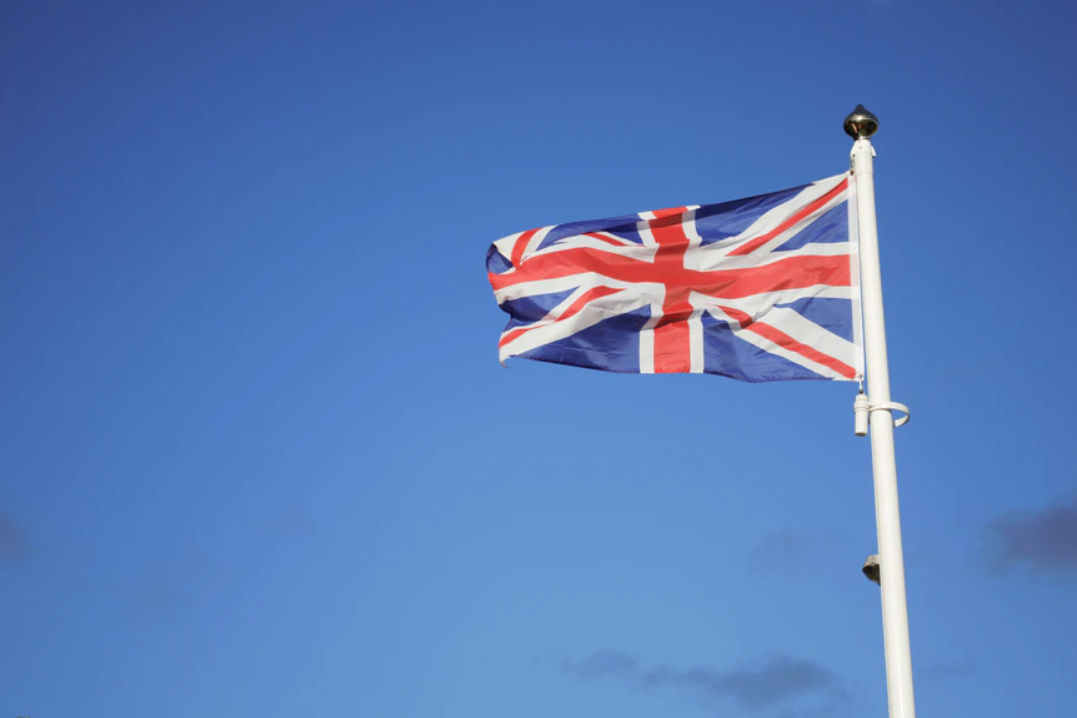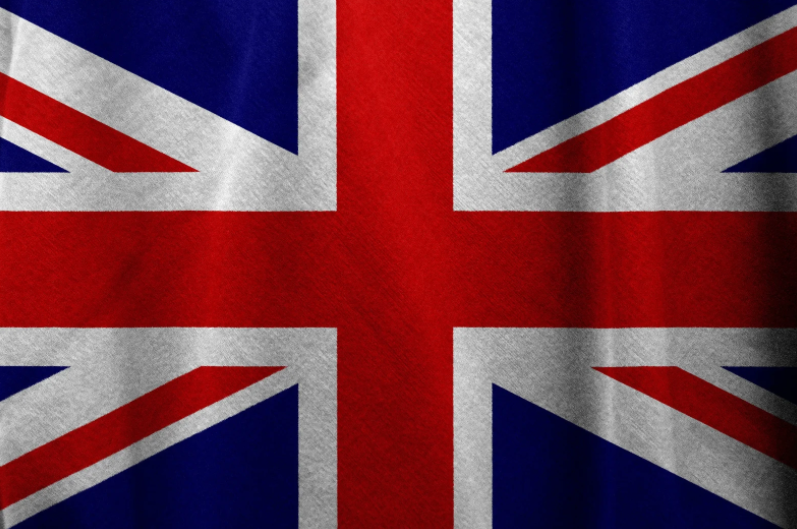Latest press releases
A selection of stories from across the Federation

US Government Expands Global Gag Rule in a Major Escalation of Regressive Foreign Policy
FOR IMMEDIATE RELEASE
For media enquiries
Telephone:
+44 7918 845944Email IPPF:
Email: media@ippf.org

| 05 August 2025
Over 1.4 Million Women and Girls in Africa Left Without Contraception as U.S. Orders Destruction of Global Supply
6 August 2025 - The International Planned Parenthood Federation (IPPF) has learned that over $9.7 million worth of US-funded contraceptives are now set to be incinerated in France. Seventy-seven percent of these essential supplies were earmarked for five countries in the Africa Region - including the Democratic Republic of the Congo (DRC), Kenya, Tanzania, Zambia, and Mali — many of which are already facing severe humanitarian crises. The incineration of these contraceptives will deny more than 1.4 million women and girls access to life-saving care. Rather than reaching the communities who need them most, these essential medical supplies - many of which don’t expire until 2027 to 2029 - are being needlessly and egregiously destroyed.IPPF Member Associations in the affected countries were due to receive a share of these contraceptive stocks. Instead, they are now facing a sharp decline in supply following the decision to incinerate them. More than 40% of the total value of the contraceptive stockpiled in Brussels was allocated for shipment to Tanzania alone. Dr Bakari Omary, Project Coordinator at UMATI, IPPF’s Member Association in Tanzania, said: “We are facing a major challenge. The impact of the USAID funding cuts has already significantly affected the provision of sexual and reproductive health services in Tanzania - leading to a shortage of contraceptive commodities, especially implants. This shortage has directly impacted clients' choices regarding family planning uptake.”This development adds a new layer of outrage to what is already a cruel political decision. These contraceptives were already manufactured, packaged, and ready for distribution. IPPF offered to take them for redistribution at no cost to the US taxpayer, but this offer was declined. The actions of the U.S. administration make it clear that politics trump economics, given the additional costs necessary for transportation, storage, and incineration of these products. “This decision to destroy ready-to-use commodities is appalling and extremely wasteful. These life-saving medical supplies were destined to countries where access to reproductive care is already limited, and in some cases, part of a broader humanitarian response, such as in the DRC. The choice to incinerate them is unjustifiable and undermines efforts to protect the health and rights of women and girls,” said Marie-Evelyne Petrus-Barry, Africa Regional Director of IPPF.IPPF's local partners in Africa will now face increased challenges to deliver essential and life-saving care. According to RHSC, the loss of these supplies is projected to result in 362,000 unintended pregnancies and 110,000 unsafe abortions: Tanzania: 1,031,400 injectable contraceptives and 365,100 implants will not be distributed. These products represent over 50% of USAID annual support to Tanzania's health system and a terrifying 28% of the total annual need of the country.Mali: 1,100,880 oral contraceptives and 95,800 implants will be denied, 24% of Mali’s annual need.Zambia: 48,400 implants and 295,000 injectable contraceptives will be denied to women.Kenya: 108,000 women will not have access to contraceptive implants, 13.5% of its annual need. Nelly Munyasia, Executive Director for the Reproductive Health Network in Kenya (IPPF Member Association): “In Kenya, the effects of US funding disruptions are already being felt. The funding freeze has caused stockouts of contraceptives, leaving facilities with less than five months' supply instead of the required 15 months; reduced capacity building for health workers; disrupted digital logistics and health information systems, and caused a 46% funding gap in Kenya’s national family planning program. These systemic setbacks come at a time when unmet need for contraception remains high. Nearly 1 in 5 girls aged 15–19 is already pregnant or has given birth. Unsafe abortions remain among the five leading causes of maternal deaths in Kenya.” Sarah Durocher, President of Le Planning familial (IPPF’s French Member Association): “We call on the French government to take responsibility and act urgently to prevent the destruction of USAID-funded contraceptives. It is unacceptable that France, a country that champions feminist diplomacy, has remained silent while others, like Belgium, have stepped in to engage with the US government. In the face of this injustice, solidarity with the people who were counting on these life-saving supplies is not optional: it is a moral imperative.”“We will not stay silent while essential care is destroyed by ideology”, continued Marie-Evelyne Petrus-Barry.Notes: IPPF’s local partners in the countries affected include Reproductive Health Network Kenya, Chama cha Uzazi na Malezi Bora Tanzania, Association Malienne pour la Protection et la Promotion de la Famille, Planned Parenthood Association of Zambia, Association Burkinabé pour le Bien-Etre Familial and the Association pour le Bien-Etre Familial/Naissances Désirables.For more information or to interview one of our staff, please contact media@ippf.org or +66628683089. About the International Planned Parenthood Federation IPPF is a global healthcare provider and a leading advocate of sexual and reproductive health and rights (SRHR) for all. Led by a courageous and determined group of women, IPPF was founded in 1952 at the Third International Planned Parenthood Conference. Today, we are a movement of 158 Member Associations and Collaborative Partners with a presence in over 153 countries. Our work is wide-ranging, and includes services for sexual health and well-being, contraception, abortion care, sexually transmitted infections and reproductive tract infections, HIV, obstetrics and gynecology, fertility support, sexual and gender-based violence, comprehensive sex education, and responding to humanitarian crises. We pride ourselves on being local through our members and global through our network. At the heart of our mission is the provision of – and advocacy in support of – integrated healthcare to anyone who needs it regardless of race, gender, sex, income, and, crucially, no matter how remote.

| 17 November 2022
UK Autumn budget doesn't go far enough
If you are covering the UK autumn budget and reporting on foreign aid, you may find the below statement from the International Planned Parenthood Federation (IPPF) helpful: “The UK government has already decimated the aid budget and its reputation through severe economic mishandling, cutting billions from the very things that protect people during economic, political and social upheaval, including life-saving sexual and reproductive healthcare. “It is also the only country to be spending the majority of its dedicated overseas aid budget within its own borders, taking advantage of legislation to pay for refugee and asylum costs in the UK rather than increasing domestic and overseas budgets accordingly. “The UK government cannot continue to fight the fire of one humanitarian crisis by diverting much-needed resources from other vulnerable people, nor continue to balance its books on the backs of the poorest people in the world - who, as MP Andrew Mitchell stated, will be damaged, maimed, or die as a result. “This government promised to give women and girls the freedom they need to succeed and prevent the worst forms of human suffering worldwide. If it is to deliver on its promises and revive its sunken reputation, it must spend dedicated budgets correctly, support people in the UK and beyond appropriately, and MP Andrew Mitchell and the Chancellor must ensure a return to the 0.7% as soon as possible.”

| 18 May 2022
UK government publishes new international development strategy
The UK government has released its long-awaited International Development Strategy (IDS) which details the UK’s approach to international development moving forward. The strategy sets out the FCDO's priorities as: Deliver honest and reliable investment, building on the UK’s financial expertise and the strengths of the City of London, and delivering the Prime Minister’s vision for the Clean Green Initiative, supporting partner countries to grow their economies sustainably. Provide women and girls with the freedom they need to succeed, unlocking their future potential, educating girls, supporting their empowerment and protecting them against violence. Provide life-saving humanitarian assistance and work to prevent the worst forms of human suffering, prioritising our funding and being a global leader in driving a more effective international response to humanitarian crises. Take forward our work on climate change, nature and global health. We are putting the commitments of our Presidency of G7 and COP26, our global leadership in science and technology, and our COVID-19 response, at the core of our international development offer. Dr Alvaro Bermejo, Director-General of the International Planned Parenthood Federation, said: "While, in theory, the UK’s new international development strategy prioritizes women and girls, it is unclear how the government will provide ‘the freedom they need to succeed’ while simultaneously cutting billions from the very things that help achieve this, including unhindered access to life-saving sexual and reproductive healthcare which helps keep girls in school, protects them from a lifetime of poverty and helps prevents untimely maternal deaths. "It is also unclear how the UK will prevent the worst forms of human suffering in humanitarian contexts when the 2021 aid cuts left millions of women across Afghanistan, Ethiopia, Ukraine, Sudan and Syria and Yemen with no control over their bodies, their futures, or their lives. And more so, while this government chooses to distribute the dedicated aid budget to fund other government departments rather than increasing overall budgets. "Until this government returns to the 0.7% target, this strategy will be little more than lip service from a government that knowingly robbed women and girls of their freedom and futures during the upheaval of a global pandemic when continued solidarity, support and humanitarian assistance from the wealthiest nations was most needed." For media enquiries, please contact Karmen Ivey on kivey@ippf.org or media@ippf.org About the International Planned Parenthood Federation The International Planned Parenthood Federation (IPPF) is a global service provider and advocate of sexual and reproductive health and rights for all. For over 65 years, IPPF through its 118 Member Associations and 15 partners, has delivered high-quality sexual and reproductive healthcare and helped advance sexual rights, especially for people with intersectional and diverse needs that are currently unmet. Our Member Associations and partners are independent organizations that are locally owned, which means the support and care they provide is informed by local expertise and context. We advocate for a world where people are provided with the information they need to make informed decisions about their sexual health and bodies. We stand up and fight for sexual and reproductive rights, and against those who seek to deny people their human right to bodily autonomy and freedom. We deliver care that is rooted in rights, respect, and dignity - no matter what.

| 12 April 2022
FCDO provisional 2021 UK aid spending shows grim reality of aid cuts
Today, the Foreign, Commonwealth & Development Office (FCDO) published its provisional statistics report on UK aid spending for 2021. The total overall aid spend was £11.5 billion, down from £14.5 billion in 2020 following the UK government's reduction to overseas development aid (ODA) from 0.7 per cent to 0.5 per cent of gross national income (GNI), citing the economic challenges posed by the COVID-19 pandemic. ODA improves the lives of people around the world, helping them access the healthcare they deserve, including lifesaving sexual and reproductive healthcare. It also helps tackle global disease, eliminate poverty, provide humanitarian assistance during conflict and reduce the impact of climate change. Dr Alvaro Bermejo, Director-General for IPPF, said: “While not surprising, the provisional UK aid spend for 2021 shows the grim reality of making such severe cuts during the tremendous global upheaval of a pandemic, when continued solidarity, support and humanitarian assistance from the wealthiest nations is most needed. “The government already knew from the equalities impact assessment that these cuts to promised funds would be devastating for women, girls and diverse groups, who disproportionally experience the effects of poverty, disease and climate change while also bearing the burden of violence, especially in conflict. “Not only that, but the government also chose to distribute the dedicated aid budget to other government departments. This includes a staggering £915 million to the Home Office and counting so-called ‘donations’ of excess COVID vaccines to other countries, which could have been given to those in need instead. The aid cuts left millions of women in Ukraine with no control over their bodies, their futures, or their lives, just as it did in Afghanistan, Ethiopia, Yemen, Sudan and Syria. Today, the role of the UK in building a better, safer world is more critical than ever if there is any hope of reversing the impacts of the cuts and the government must return to the 0.7% as soon as possible – the lives and futures of people depend on it”. Key statistics include: The provisional ODA:GNI ratio for 2021 was 0.5 per cent, or £11.5 billion. In 2021, UK Official Development Assistance (ODA) was £11,496 million, a decrease of £2,982 million (20.6 per cent decrease) on 2020. In 2021, UK bilateral ODA was £7,086 million (a decrease of 25.7 per cent) while U.K. multilateral ODA was £4,411 million (a decrease of 10.8 per cent). The Foreign, Commonwealth and Development Office (FCDO) spent £8,308 million in 2021, compared with £10,664 million in 2020 (a decrease of £2,356 million). Non-FCDO5 spend on ODA in 2021 was £3,189 million, compared with £3,815 million in 2020 (a decrease of £626 m). The non-FCDO share was 27.7 per cent, up from 26.3 per cent in 2020. In 2021, £550 million of UK ODA was spent on activities to address the COVID19 pandemic². The Home Office spent £915 million of ODA in 2021 (an increase of 53.3 per cent). This was mostly due to increased accommodation costs for asylum seekers to ensure the measures set out in law were adhered to in limiting the spread of COVID-19. For media enquiries, please contact Karmen Ivey on kivey@ippf.org or media@ippf.org About the International Planned Parenthood Federation The International Planned Parenthood Federation (IPPF) is a global service provider and advocate of sexual and reproductive health and rights for all. For over 65 years, IPPF through its 118 Member Associations and 15 partners, has delivered high-quality sexual and reproductive healthcare and helped advance sexual rights, especially for people with intersectional and diverse needs that are currently unmet. Our Member Associations and partners are independent organizations that are locally owned, which means the support and care they provide is informed by local expertise and context. We advocate for a world where people are provided with the information they need to make informed decisions about their sexual health and bodies. We stand up and fight for sexual and reproductive rights, and against those who seek to deny people their human right to bodily autonomy and freedom. We deliver care that is rooted in rights, respect, and dignity – no matter what.

| 18 March 2022
Equalities Assessment: UK Government knew 2021 aid cuts would significantly impact women and girls
The Government’s Equalities Assessment shows that the government was well aware that the scale of the 2021 aid cuts to specific gender interventions, including Violence Against Women and Girls and Sexual and Reproductive Health and Rights, would disproportionately impact women, girls and people with protected characteristics such as those living with disabilities. The U.K. government were also aware that the aid cuts would reduce services available to survivors of sexual violence, including sexual exploitation, abuse and sexual harassment. Dr Alvaro Bermejo, Director-General of the International Planned Parenthood Federation, said: “We are pleased to see the long-awaited equalities assessment and are hopeful that public scrutiny will encourage the Government to double down on its efforts to champion and support equality. Government commitments are especially significant for 2022, given the scale of the 2021 aid cuts to specific gender interventions, including those helping to end Violence Against Women and Girls, Sexual and Reproductive Health and Rights programmes and targeted interventions aimed at reaching those left furthest behind – including people living with disabilities. “Today, the role of international aid in building a better, safer and equal world is more relevant than ever as the Ukrainian people look to governments across the globe to support them during the most severe humanitarian crisis Europe has seen in years. With the EU predicting up to 7 million displaced people and vulnerable refugee populations requiring distinct and personalised care, we ask the U.K Government to step up for the international community and return to the 0.7% aid target as soon as possible – the lives and futures of people across the globe depend on it.” Manuelle Hurwitz, Director of Programmes for IPPF, added: "The government knew the reduction to development programmes would completely contradict its priorities of getting 40 million more girls into education by 2025 flies in the face of achieving gender equality and yet it chose to proceed with them anyway. For media enquiries, please contact media@ippf.org
















